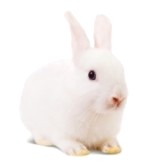
Well, it is confirmed. We overshot Mars. Someone miscalculated. Opposition was off and now we have a new destination. Oops.
First medical officer Rosa was crying about it. I felt little sympathy for her, because her tears demonstrated that all her chatter about Jonathan Livingston Seagull and her place in the universe and her oneness with the being that some call God, etc. was bullshit.
Since he was the first navigator, John had no time to ponder and went to work right away with course changes and trajectories. He didn’t like to ponder much, at the best of times.
First engineer Will was close to tears, because he probably knew better than anyone if this old bucket could make it to Beta Omega. Will had legendary eyelashes. As second engineer I had a good idea whether or not the craft could withstand the extra distance, too. Slim chance, I believed, but slim was better than none. I saw the cup half full, in other words, while Will saw it half empty.
As first communications officer, I had the charming task of telling the other four, whom I hadn’t seen in six weeks. Two of them, Chris and Haven, were scheduled to be rotated back to us, while Sara and Ed were going to welcome Rosa and Will. We did this rotation, ostensibly, to prevent the contempt of familiarity.
I went through the tunnel and rang the doorbell. We observed little courtesies like that on this journey. Chris opened the hatch, then reflexively checked his watch. “Hi,” I said. “Rotation is not until another three days.”
“Too bad,” said Chris. “I’m about to murder Ed.”
“I’m about to murder Rosa,” I told him.
Chris got everyone together in the dining room, and I explained the change in plans, relying on technical terms and euphemisms to mask the nuclear-strength emotional bombshell. I was met with a stunned silence. Ed spoke first.
“Beta Omega?” he said. “That’s B-O, not very auspicious.”
“Shut up, Ed,” said Chris. “What is the estimated time frame on this?”
“Two years til landing,” I said.
“Fuck,” said Sara.
“No return,” Haven, mistress of the obvious, said.
Ed, supply and distribution officer, told us fuel, food, water, and oxygen would get us there. We already knew that. We thought about it constantly and checked on it compulsively, no matter what the destination.
Sara, first science officer, looking up from her laptop, told us that Beta Omega was a friendly, and the only one. It would be possible. Just. Good old Sara. Glass half full.
Haven said, “I would like to convene a meeting at 1900 hours to discuss how to handle this.” Haven liked porn. I knew this because I knew what everyone watched, and what everyone read, and what everyone wrote.
“What’s for dinner?” I asked.
“Spaghetti,” said Chris. “My Nona’s recipe.”
We all thought a moment about Nona, and how Chris would never set eyes on her again, nor his father or sisters. Nor Alice, his niece, or Chief, his chocolate lab.
We thought a moment about our families. I thought about the woodpecker, the stupid one that woke me early on weekends by hammering on the metal chimney spout.
Some of us thought about sex. I glanced at Chris. My choice for daddy of the millennia, for the first born on the first world, the inauspiciously named B-O. He had a soft spot for Sara. I might have to do something about that.
—
- Original Prompt: Longing for Gravity, February 27, 2016
You are on a mission to Mars. Because of the length of of the journey, you will never be able to return to Earth. What about our blue planet will you miss the most?








